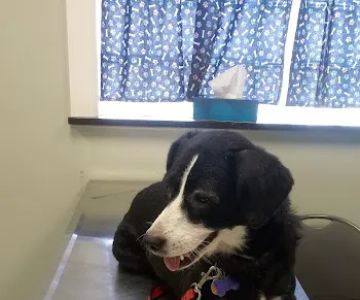How to Call a Veterinarian – A Guide to Reaching Your Vet When You Need Them
- Why You Should Call Your Veterinarian
- When to Call a Veterinarian
- How to Contact Your Vet
- Emergency Veterinary Care: What to Do
- Using Vet Telemedicine for Non-Emergencies
1. Why You Should Call Your Veterinarian
As a pet owner, one of the most important aspects of caring for your animal is knowing when to call your veterinarian. I remember a time when my dog, Daisy, was showing signs of discomfort, and I wasn’t sure whether it was a simple issue or something more serious. After a quick call to the vet, I was reassured and given guidance on how to manage the situation. This experience made me realize how essential it is to know how to contact a vet and what to expect when doing so. Your vet is not just a resource for routine checkups; they are there to help you with advice, guidance, and emergency care when your pet's health is at risk.
Calling your vet is the first step to getting the right care for your pet. Whether you're facing an emergency or just need some advice on managing your pet's health, your veterinarian should be your go-to expert. In fact, having an open line of communication with your vet can help prevent minor issues from escalating into major health problems.

520 W Wyoming Ave, Cincinnati, OH 45215, USA
See Details2. When to Call a Veterinarian
Knowing when to call your vet can make a big difference in your pet's health and well-being. Over the years, I’ve learned the importance of calling the vet in a timely manner, rather than waiting too long and potentially making the situation worse. There are a few key situations where reaching out to your vet is essential:
2.1. Signs of Illness or Injury
One of the most common reasons to call your vet is when your pet shows signs of illness or injury. This could include symptoms such as vomiting, diarrhea, lethargy, coughing, or difficulty breathing. For example, when Daisy had an allergic reaction to a bee sting, I immediately called the vet to make sure it wasn’t something more severe. They advised me on what to do while I took her in for treatment. It's important not to ignore any unusual behavior, as it could be a sign that something is wrong.
2.2. Behavioral Changes
If your pet exhibits sudden changes in behavior, such as aggression, confusion, or withdrawal, it’s always a good idea to check in with your vet. These behavioral changes could indicate an underlying health issue that needs professional attention. I once had to call the vet when my cat started acting aggressively after a seemingly normal routine, and it turned out she had a dental issue causing pain. Calling the vet early helped me avoid further complications.
2.3. Routine Checkups and Preventative Care
Even though many people think of calling a vet only in emergencies, regular checkups and preventative care are just as important. It's advisable to call your vet to schedule annual checkups, vaccinations, or flea/tick prevention treatments. Routine care helps ensure your pet stays healthy, and your vet can spot potential health issues before they become more serious.
3. How to Contact Your Vet
There are several ways to contact your veterinarian, depending on their office setup. Here are some common methods I’ve used to get in touch with Daisy’s vet:
3.1. Calling the Vet’s Office
The most direct method is calling the vet’s office during business hours. Most vets have staff available to answer calls, schedule appointments, and provide general advice. If your pet has a more urgent issue, the staff may be able to get you a same-day appointment or advise you on how to handle the situation until you can bring your pet in. In my case, I’ve had quick responses when I needed urgent care, and the vet’s office staff helped direct me on what steps to take while waiting to visit.
3.2. Email or Online Contact Forms
Many veterinary offices now offer email or online contact forms for non-urgent inquiries. If I need to ask a quick question about my pet's diet or vaccination schedule, I often use these methods. However, for anything that requires immediate attention, I always call directly. Email or online forms are best used for follow-up questions or general advice that doesn't require an immediate response.
3.3. Telemedicine Services
Some veterinarians now offer telemedicine services, which allow you to have virtual consultations with your vet from the comfort of your home. This is especially useful for follow-up visits or non-emergency issues that don’t require in-person care. I’ve used telemedicine services for simple consultations about my pets' health concerns, such as dietary advice or minor skin irritations. Many vet offices now offer telemedicine consultations, so be sure to ask if this service is available.
4. Emergency Veterinary Care: What to Do
Sometimes, emergencies happen that require immediate action. If your pet is in serious distress, it’s crucial to call your vet right away or, in some cases, head to an emergency veterinary clinic. When Daisy ate something harmful, I rushed to the emergency vet clinic, and I was grateful that I knew exactly where to go and what to do. It’s important to have the contact information for emergency vet services readily available and to stay calm during an emergency.
5. Using Vet Telemedicine for Non-Emergencies
Telemedicine is a growing trend in veterinary care, allowing pet owners to connect with vets via video calls for consultations that don’t require in-person visits. I’ve personally used telemedicine for some non-urgent questions, like advice on a minor skin issue or diet changes. These virtual appointments can save time and money, especially for small concerns that don’t need an in-person exam. If your vet offers telemedicine, it can be a great way to stay connected to your pet’s healthcare team without having to leave home.
In today’s world, calling your veterinarian has never been easier, whether you’re dealing with an emergency or just have a quick question. With phone calls, emails, telemedicine, and more, there are many ways to get the support you need. It’s always best to reach out as soon as you notice something isn’t right with your pet. Don't hesitate to contact your vet—they’re there to help ensure the health and safety of your beloved pet. For more information on how to contact your vet or to find a trusted veterinary service, visit [Pharmacy] for expert advice and support.










